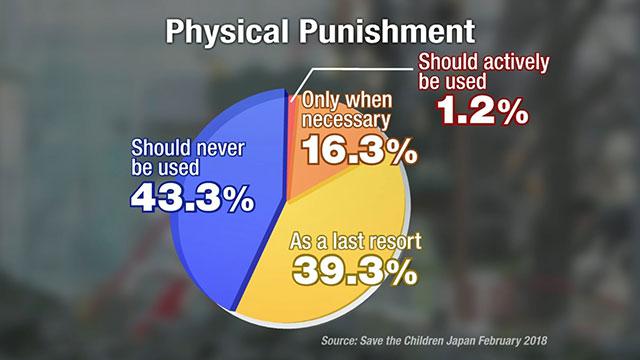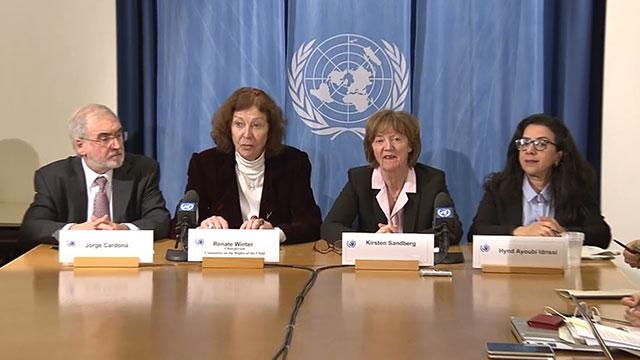The details of the proposal
The government wants to explicitly ban corporal punishment against children by their parents. It's also calling for a review of a civil code provision on the right to discipline over the next several years.
While Japan's current child abuse prevention law stipulates that violent acts against children constitute abuse, it also says due consideration should be given to parents disciplining their children. Experts say that clause coupled with the civil code provision is often used as an excuse by abusive parents.
Tragic cases spark outcry
The changes were proposed after a series of high-profile cases sent shockwaves throughout the country. In January, 10-year-old Mia Kurihara was found dead in her home in Chiba Prefecture after her father allegedly carried out horrific abuse and her mother failed to stop it. Her parents are both under arrest. Her father has admitted to drenching Mia in cold water, but said it was discipline.
Another harrowing case took place in Tokyo last year in which a five-year-old girl died after her parents allegedly starved her and withheld medical care. She had left a notebook behind in which she begged for forgiveness. Her father also claimed he was disciplining her.
There have been calls for stronger laws as police launched a record 1,380 criminal investigations into child abuse in 2018.
The National Police Agency also says officers referred more than 80,000 children to welfare centers and took over 4,000 into emergency custody last year. Those figures are also the highest since record-taking began 16 years ago.
Experts say they can't immediately conclude from the increase in the numbers that child abuse is becoming more prevalent, but they say it definitely reflects changes in awareness against abuse. They say that while violence between family members in Japan was once considered a matter outsiders should stay out of, it is now increasingly being seen as something that requires intervention.
Proposed ban sparks debate over discipline
The alleged child abuse cases in the spotlight go far beyond the accepted method of discipline, but the government's proposed ban has led to a broader conversation about the nature of discipline itself in Japan.
An online survey conducted last year by non-governmental organization Save the Children Japan shows a majority of the 20-thousand respondents said physical discipline was acceptable in some cases, while less than half said it should never be used.

Some parents we approached said discipline is a subjective issue and the expected ban on physical punishment makes them feel self-conscious. While one father said it was unthinkable to be physically abuse toward his children, one mother said, "If my daughter is doing something dangerous and I want to tell her to never do that again, it's difficult to get that across just with words." Another woman said it will be hard to draw a line between what's is physical punishment and what's not.
Experts' views
Some experts are calling a ban a significant step that will send a signal to parents that physically punishing their child is not acceptable. Fumihiko Kawasaki, Director of Children's Rainbow Center, calls it a good first step, but says more needs to be done to support families. He says, "We need to do more than simply informing people that physical punishment is illegal. We also need to look into why some parents are unable to stop being physically abusive and what we can do to prevent that. We need to think about how to create a society and a child-rearing culture that does not include corporal punishment."

International criticism against Japan
In February, the UN's Committee on the Rights of the Child called on Japan to clearly and completely ban corporal punishment, however light a form it takes.
Committee members pointed out Japanese law does not completely prohibit physically punishing children at home, following a review of how well the country was living up to a UN Charter that protects children.
If the government's proposed legislation comes into force, Japan will be joining over 50 other countries that already have a ban in place.

Next steps
The ruling coalition wants to pass the government's bill by the end of the current Diet session, which is expected to wrap up in June. But the ban on physical punishment is not the only change being proposed. The government has also set forth measures to enhance capabilities of welfare centers, which is another key part of the legislation. It wants to make it mandatory for the centers to have lawyers and doctors. Opposition lawmakers say they want their ideas added. They plan to submit their own proposal to increase the number of welfare workers and to implement other measures. Lawmakers are expected to continue discussing the amendments to the child protection system during the current Diet session.

